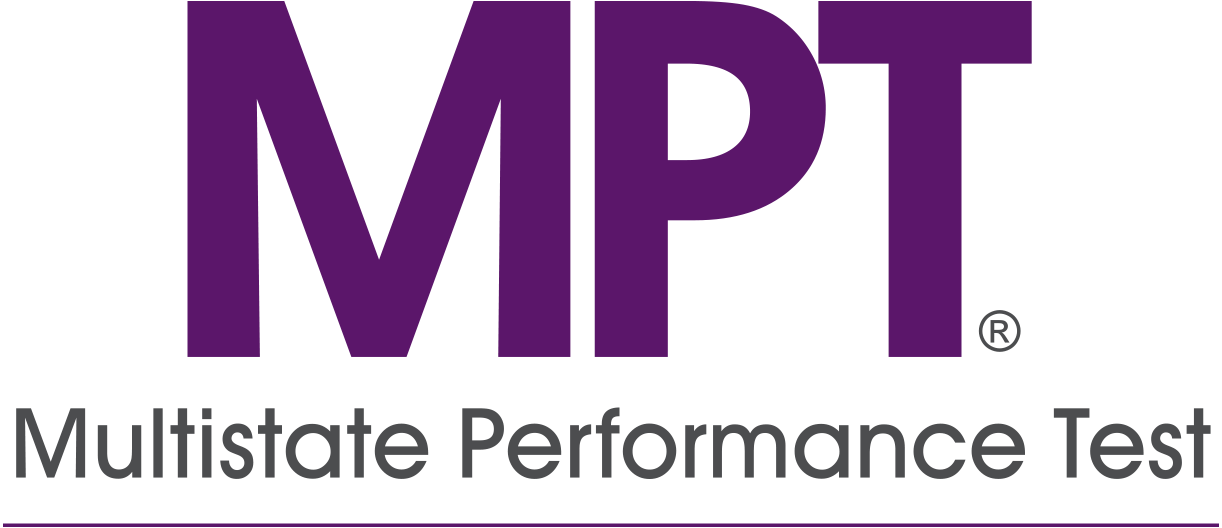
The MBE, MEE, and MPT will be administered through the February 2028 bar exam and will be replaced in July 2028 by the NextGen Uniform Bar Exam. Find out when your jurisdiction will first administer the NextGen UBE.


The MBE, MEE, and MPT will be administered through the February 2028 bar exam and will be replaced in July 2028 by the NextGen Uniform Bar Exam. Find out when your jurisdiction will first administer the NextGen UBE.
The MPT consists of two 90-minute items. The materials for each MPT include a File and a Library. The File consists of source documents containing all the facts of the case. The specific assignment the examinee is to complete is described in a memorandum from a supervising attorney. The File might also include transcripts of interviews, depositions, hearings or trials, pleadings, correspondence, client documents, contracts, newspaper articles, medical records, police reports, or lawyer’s notes. Relevant as well as irrelevant facts are included. Facts are sometimes ambiguous, incomplete, or even conflicting. As in practice, a client’s or a supervising attorney’s version of events may be incomplete or unreliable. Examinees are expected to recognize when facts are inconsistent or missing and are expected to identify sources of additional facts.
The Library may contain cases, statutes, regulations, or rules, some of which may not be relevant to the assigned lawyering task. The examinee is expected to extract from the Library the legal principles necessary to analyze the problem and perform the task. The MPT is not a test of substantive law; the Library materials provide sufficient substantive information to complete the task.
For instructions provided with each MPT, see Instructions for Taking the MPT.
The MPT requires examinees to (1) sort detailed factual materials and separate relevant from irrelevant facts; (2) analyze statutory, case, and administrative materials for applicable principles of law; (3) apply the relevant law to the relevant facts in a manner likely to resolve a client’s problem; (4) identify and resolve ethical dilemmas, when present; (5) communicate effectively in writing; and (6) complete a lawyering task within time constraints.
These skills are tested by requiring examinees to perform one or more of a variety of lawyering tasks. For example, examinees might be instructed to complete any of the following: a memorandum to a supervising attorney, a letter to a client, a persuasive memorandum or brief, a statement of facts, a contract provision, a will, a counseling plan, a proposal for settlement or agreement, a discovery plan, a witness examination plan, or a closing argument.
For a description of the skills tested on the MPT, see MPT Skills Tested.

To learn about NCBE’s study aids available for purchase, see our Study Aids page.

Jurisdiction-specific bar admission requirements and directory of state bar admission agencies.